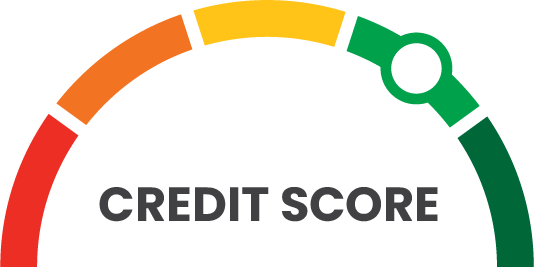Money Mumbo Jumbo: Financial Terms Made Easy
Acronyms, scores, percentages and more—financial terms can sometimes make things seem more complicated than they need to be. Don’t let those SAT vocabulary words be a barrier to confidently talking about your money. Here’s your translation guide for money mumbo jumbo.
Psst! Save this page because it will be updated periodically to keep up with the latest financial fads and phrases.
Back to Financial Basics
Just a couple of essentials before we get into more specific trends and terms.
Credit Score 101
What is a credit score?
A credit score is an estimate of how likely you are to repay debt and pay your bills based on information from your credit accounts (aka credit reports).
What’s a good credit score? What’s a bad one?
While creditors can create their own rules for what credit scores they choose to accept, there are still general ranges you can use as a guide:

How do you improve your credit score?
All of these may not be possible for you at a given time, but here are a few of the most effective ways to improve your credit score:
- Pay all of your bills on time (Pro Tip: Set monthly reminders for due dates and automate payments whenever possible!)
- Monitor your credit utilization and keep credit card balances under 30% of their limit
- Protect the age of your credit by keeping older credit cards open
- Review your credit reports and dispute any errors you find
- Spread out your credit applications to avoid multiple “hard pulls” on your credit in a short period of time
- Ask for higher credit limits as you feel comfortable
How do you check or monitor your credit?
It’s always good to check-in on your credit score (it won’t hurt your score). You can get a free credit report at AnnualCreditReport.com or view your credit score within OKCU's Digital Banking app.
Banks vs. Credit Unions
Banks |
Credit Unions |
|---|---|
|
Typically for-profit institutions and are privately owned or publicly traded |
Not-for-profit institutions and distribute profits among all members in the form of better interest rates and fewer fees |
|
Serve customers on a regional or nationwide basis |
Serve members of a certain region, employer or common group |
|
Fees vary |
Fees vary, but are typically lower than banks |
|
Most banks have branches unless they are online-only |
Most credit unions have branches unless they are online-only |
|
Large banks have advanced technology, but smaller banks can have dated options |
Technology at credit unions vary, but even regional credit unions can have advanced technology (speaking from experience!) |
|
FDIC insured; protecting up to $250,000 per depositor |
NCUA insured; protecting up to $250,000 per depositor |
Trending Financial Topics
Cryptocurrency
A cryptocurrency is a digital currency operating and secured by a decentralized system that utilizes cryptography (no traditional institutions like a bank or government involved at all). Cryptocurrencies are supported by blockchain technology, providing a public, hack-proof ledger of all transactions.
Cryptocurrencies are similar to stock market investments in that they are volatile and offer no promise for a return on investment. However, those looking to get involved in the crypto market are recommended to do your homework on which cryptocurrencies best fit your financial life.
Today, there are over 19,000 cryptocurrencies. Established as the first ever cryptocurrency in 2009, Bitcoin remains the most popular of them all.
The first actual transaction with Bitcoin took place on May 22, 2010 when a Florida man negotiated to have two Papa John’s pizzas worth $25 delivered in exchange for 10,000 Bitcoin. This established the first actual value of Bitcoin, at 4 bitcoins per penny. Fans have since dubbed this day “Bitcoin Pizza Day.” (Source: Bankrate)
Financial Independence, Retire Early (FIRE)
The FIRE movement is a programm where people prioritize extreme saving and investing (like 50–70% of your annual income) with the goal of retiring as early as possible. In order to achieve FIRE success, proponents aim to save 25–30 times their annual expenses and quit their jobs well ahead of the traditional 60s retirement age.
With FIRE movement followers living particularly frugal lifestyles to meet their savings/investment goals, extremely detailed planning and financial discipline are essential. No expense escapes scrutiny during this FIRE drill. It’s definitely not considered a viable option for many people, but if it works for you, we’ll all be staring at your travel pictures on Instagram with envy.

Financial Terminology You Should Know
401(k)
This is a type of retirement plan offered by companies that are tax-deferred. Often times, your company will match some amount of your contributions to your 401(k).
APR
APR stands for Annual Percentage Rate. This refers to how much interest you’re paying on the money you borrow on an annual basis.
Assets
Assets refer to your items of economic value (house, car, etc.).
Bankruptcy
Bankruptcy simply means that you owe more money than you are able to pay. While it can help get out of a nasty financial hole, do your research before you decide because it will stay on your record for 10 years.
Beneficiary
A beneficiary is a person or group of people who are designated to receive the money and/or benefits under a trust, will, insurance policy, etc.
Bonds
Bonds are representative of money you’re lending to a company or institution (also known as the issuer). The issuer pays a set interest rate during the life of the bond and promises to repay the principal when it reaches maturity or comes due after a set period of time.
Capital gain
This refers to the profit you get from selling an investment for more than you originally paid for it.
Capital loss
Not as fun as capital gains. This refers to the loss you take from selling an investment for less than you originally paid for it.
Certificate
A certificate is a savings product offered by banks and credit unions that has a fixed interest rate and maturity date.
Checking account
A checking account is an account at a bank or credit union that allows you to make deposits/withdrawals and pay bills. This type of account doesn’t typically earn interest, but is great for your everyday purchases.
Compound interest
Compound interest means that you earn interest on the interest you earn, resulting in exponential growth instead of linear growth.
Debt consolidation
Debt consolidation is a strategy to simplify your debt payments by combining debts from multiple sources into one loan with one monthly payment.
Deductible
The deductible refers to the amount of money an insured individual needs to pay before the insurance company will contribute to an expense they cover. Deductibles vary based on the type of insurance.
Direct deposit
Direct deposit is the process of money being electronically sent to your bank account, credit union account or prepaid card. Many people receive their paychecks through direct deposit.
Down payment
The down payment is an initial payment made when something is bought using credit, like a house or vehicle. The bigger your down payment, the less you have to borrow.
Emergency fund
An emergency fund is a money, typically in a savings account, that’s been set aside to use as a financial safety net for unplanned expenses. Some examples of times to use an emergency fund include medical bills, car/home repairs or a loss of income.
FAFSA
FAFSA stands for the Free Application for Federal Student Aid. This form is used to determine how much money a student is eligible to receive in federal financial aid in the pursuit of higher education.
Gross income
Your gross income is the total pay you’ve earned before taxes and deductions are taken out.
Inflation
Inflation refers to a general increase in prices over time that correlates with a decrease in the buying value of money.
Interest rate
The interest rate refers to a percentage of the principal sum (either lent or borrowed) that is charged as interest on the outstanding loan. Banks and credit unions also pay you an interest rate for depositing your money in certain types of accounts (like a savings account).
Liability
A liability is something that is a financial disadvantage. Common types of liabilities include money owed, debt or obligations.
Liquidity
Liquidity refers to the amount of money a person or company has on hand or is easily accessible for use.
Maturity date
The maturity date is the set date when the principal amount of debt—loan, bond, certificate, etc.—is due to be paid in full.
Mortgage
A mortgage is a type of loan used to buy a home (or land or other real estate property).
Mutual fund
A mutual fund is a professionally managed investment program funded by money from shareholders. Mutual funds use the money from investors to buy securities, including stocks, bonds and short-term debt. As investors purchase shares in mutual funds, each shareholder has a part ownership in the mutual fund and its generated income.
Net income
Your net income is the amount of money you receive in your paycheck. This money is after taxes and other deductions are taken out of your gross income and is also called take-home pay.
Net worth
Your net worth is calculated by subtracting your debts from your total assets.
Principal
The principal amount is the initial sum of money that was lent or invested, on which interest is paid. In lending, the principal is the amount borrowed where you agree to pay back the principal plus interest accumulated over time. In investing, the principal is the amount you put in the investment with the expectation that interest will be paid to you as income.
Roth IRA
A Roth IRA (Individual Retirement Account) is an account that you fund through your own contributions with after-tax dollars. Since the contributions are made after-tax, you don’t pay any taxes on the funds you accumulate over time. Make sure to talk with a tax advisor before opening this type of account.
Savings account
A savings account is an account at a bank or credit union that earns interest. It’s used to set aside (or save) money.
Stocks
Stocks are a type of investment that represents a portion of ownership in a company. Stocks are also known as equities.
Tax deduction
A tax deduction is an expense that you can subtract from your taxable income, ultimately reducing the amount of taxes you owe. Some examples include charitable donations or business expenses. Talk with a tax advisor for more information.
Traditional IRA
A Traditional IRA (Individual Retirement Account) is an account that you fund through your own contributions with pre-tax dollars. Earnings on these accounts are tax-deferred, meaning that you don’t owe taxes until you withdraw funds (typically at or during retirement). Talk with a tax advisor for more information.
W-4
A W-4 form is a document completed by employees so that their employer knows how much income tax to withhold from their paycheck.
Need More Money Terms?
See something missing from our terms list? Need more information on your favorite financial topic? All questions are accepted here because everyone at OKCU is Happy to Help® however we can!

The information and topics features are for information purposes only and does not constitute legal, tax or financial advice. All financial situations and circumstances are different and may not apply to the specific information provided. Seek the advice of a financial professional, tax consultant, or legal counsel to obtain guidance specific to your needs.

